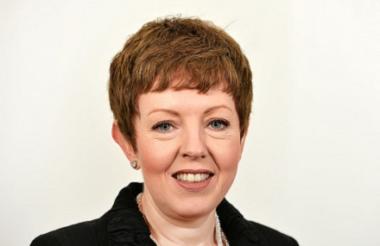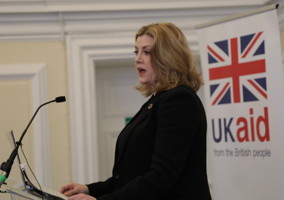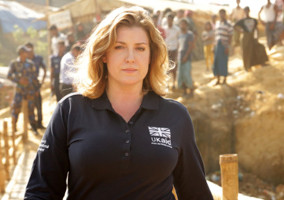Some 26 aid charities have reported a total of 80 serious incidents to the Charity Commission and the overall reporting rate has doubled in the wake of increased scrutiny on the sector, the new chair of the regulator revealed yesterday.
Baroness Stowell, the recently appointed chair the Charity Commission, was speaking at a summit co-hosted with the Department for International Development yesterday.
The Commission has set up special task force and been encouraging charities to come forward and let it know about serious safeguarding incidents.
Stowell said that the “rate of reporting in the last couple of weeks has doubled as a result”.
She said the Commission had also received 26 serious incident reports from aid charities.
“Our special taskforce is now examining the reports we’ve received and will ensure that the Commission and the charities involved take the right corrective action,” she said.
The 26 aid charities have now reported 80 incidents to the Commission between them. Of these, 19 of those charities reporting incidents were informing the Commission of things that happened prior to April 2017.
Yesterday the development secretary, Penny Mordaunt, said all 179 charities had submitted a statement of assurance as requested, and that it was following up with 37 of them for further clarity.
DfID also announced the conclusions of its internal review. It said that since 1995 there have been 14 cases of claims about DfID staff being responsible for misconduct of a sexual nature, which had all closed.
It said the majority related to incidents between staff and that there were no proven allegations of DfID staff paying for sex.
DfID said that there "were fewer than five substantiated cases in 2017". It added that there are also fewer than five open, or new, cases.
‘Plain speaking is important’
In her first speech as chair of the Charity Commission, Stowell said that plain speaking is important for the regulator, as she committed to helping the sector rebuild public trust in the wake of the safeguarding scandal.
Speaking at a summit co-hosted with the Department for International Development yesterday, she said: “I want to say something about language.
“As the regulator, it’s important to me that I always speak plainly.
“As we now look ahead, it’s vital we don’t allow the shorthand, technocratic word of “safeguarding” to let us forget what the failings are that we are talking about.”
She said that some charities had been shown to be “abusing their trusted status by failing to put the welfare of the blameless ahead of their corporate reputation”.
Stowell said the regulator was committed to working with the sector and DfID to “identify practical solutions”.
‘We must understand why people are angry’
Stowell said that the Commission was working on ways to reassure people about the actions the Commission is taking when concerns are reported, but that it was important to understand why people were angry.
“If we are to restore public trust, we must understand why people are angry,” she said.
She alluded to a wider problem with institutions being seen to act out of self-interest, and said: “It’s bad enough when bankers disappoint. But when aid workers and charity bosses are self-interested it is incomparably worse.”
Stowell said the public has high expectations of the sector, and that: “They expect charities to have good aims, and to pursue those aims according to common standards of human decency.”
She added that: “However noble your cause, it doesn’t provide immunity from these basic expectations.
“No cause, however noble, provides a licence to justify unacceptable means.
“It is the combination of why you exist, what you achieve, and how you do it that generates the nation’s pride and people’s support.”
‘We need to show we understand’
Stowell also said that yesterday’s summit would be a “failure” if the sector came away thinking about ways to make the public understand charities.
“The public don’t need to understand better,” she said, “we need to show we understand what the public expect of us.”
|
Related articles












